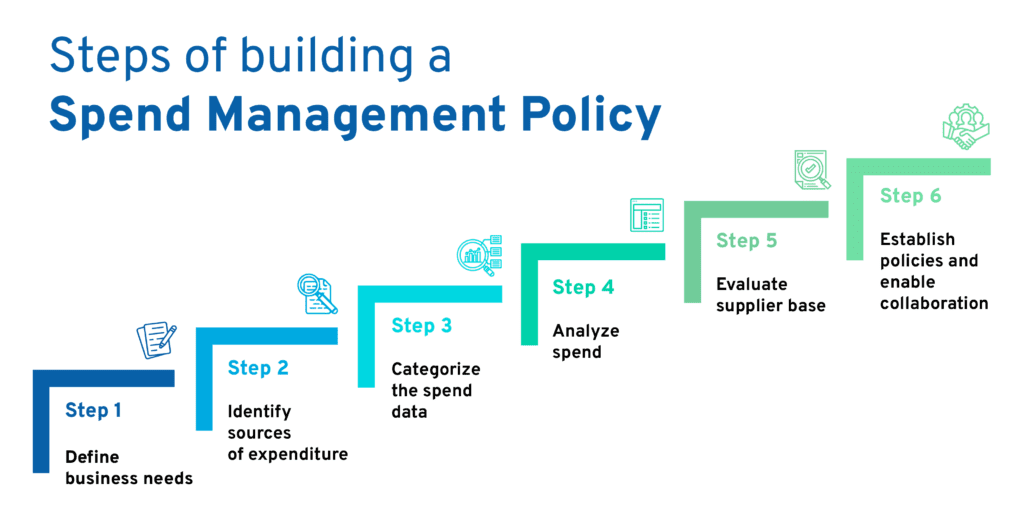Effective Spend Management for Success
In today’s dynamic business world, efficient spend management is a cornerstone of success. It’s not merely about minimizing expenses but also about allocating resources wisely. Whether you’re a small business owner or part of a large corporation, these practical strategies will guide you in making informed decisions to achieve better financial results.
Setting Clear Budget Goals
To effectively manage spend management strategies, it’s crucial to have a clear direction. Establish realistic and attainable budget goals that align with your company’s overarching financial objectives. This enables you to measure and monitor your progress accurately.
Regularly Reviewing Expenses
Regularly scrutinize your expenses to gain a comprehensive understanding of where your money is going. Don’t limit this review to just your monthly bills; delve into daily operational costs. A detailed examination can unveil areas where you might be overspending.
Prioritizing Spending
All expenses are not created equal. Prioritize your spending by focusing on areas that directly impact your primary business operations. For instance, if your business is in the software industry, investing in research and development may outweigh spending on expensive office furniture.
Negotiating with Suppliers
Supplier relationships play a vital role in business spend management. Be proactive in negotiating with suppliers to secure better deals. Sometimes, loyalty can translate into discounts, and exploring new procurement options can yield significant cost savings.
Embracing Technology
Modern technology provides various tools to streamline spend management. Consider implementing expense-tracking software to monitor your financial transactions in real-time. These tools are invaluable in swiftly identifying trends and anomalies.
Avoiding Impulse Purchases
One common pitfall in spend management is impulsive spending. Implement a multi-level approval system for significant expenditures.
Tracking Key Performance Indicators (KPIs)
To gauge the effectiveness of your spend management strategies, establish and closely monitor key performance indicators (KPIs). These KPIs may encompass metrics such as cost savings, return on investment, and cost per unit produced.
Analyzing Cost-Benefit Ratios
Before making significant financial decisions, carefully assess the cost-benefit ratios. What are the expected expenses and returns on investment? With this analysis, you can align your decisions with your financial objectives.
Monitoring Cash Flow
Cash flow is the lifeblood of your business. Maintain a firm grip on your cash flow to avert liquidity issues. Inconsistent cash flow can lead to debt and other financial challenges.
Continuous Improvement
Spend management is an ongoing process, not a one-time task. Regularly evaluate your strategies and seek ways to enhance them. Solicit feedback from your team and make adjustments as necessary.
Considering Outsourcing
In some cases, outsourcing specific functions can be more cost-effective than keeping them in-house.
Staying Compliant
Adherence to legal and regulatory requirements is paramount for sound spend management. Fines and legal troubles can be costly. Ensure that your spending practices align with the law.
Communicating Transparently
Effective communication within your organization is essential. Encourage open and transparent discussions about spending decisions and their impact on the company. This fosters financial transparency and helps prevent unpleasant financial surprises.
Celebrating Achievements
Recognize and celebrate financial achievements within your organization. When your team successfully manages spending and meets or exceeds budget goals, acknowledge their efforts. This boosts morale and encourages continued fiscal responsibility.
In Conclusion
In conclusion, spend management is a multifaceted process that demands dedication and adaptability. By establishing clear goals, regularly reviewing expenses, and prioritizing spending, you can make more informed financial decisions. Embrace technology, train your team, and continuously seek ways to improve your strategies. Remember, it’s not just about cost-cutting; it’s about spending wisely and attaining sustainable financial success.
FAQS
- 1. Why is spend management important for businesses?
- Spend management is essential for businesses because it helps optimize costs, enhance profitability, and align financial decisions with organizational goals. It ensures that resources are used efficiently, leading to sustainable financial success.
- 2. How can I encourage my team to actively participate in spend management?
- You can foster team participation by providing training in cost-conscious practices, creating a culture that values responsible spending, and involving team members in the budget planning process. This collaboration encourages a sense of ownership and responsibility for managing expenses.
- 3. What are some key performance indicators (KPIs) for tracking spend management success?
- Key KPIs for measuring spend management success include metrics like cost savings, return on investment (ROI), cost per unit produced, cash flow analysis, debt-to-equity ratio, and supplier performance. These indicators provide a comprehensive view of how well your spend management strategies are performing.



